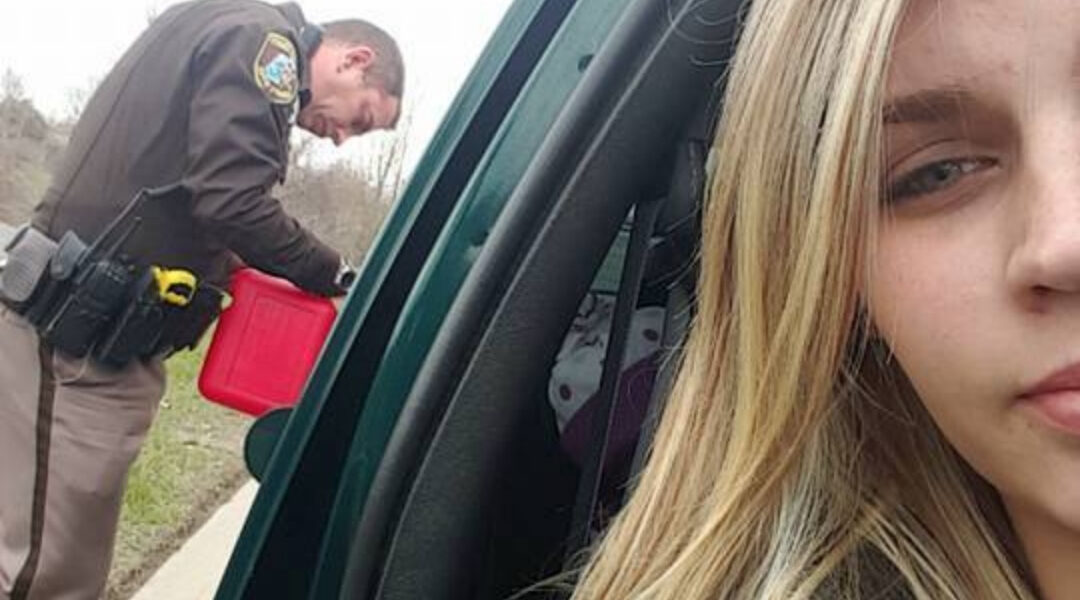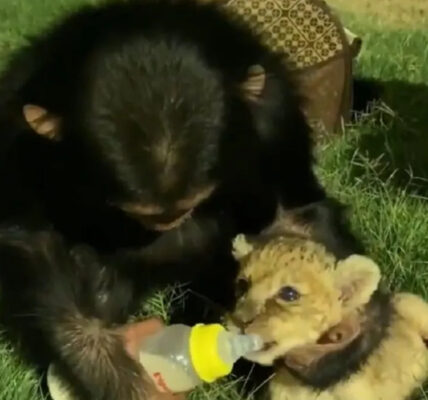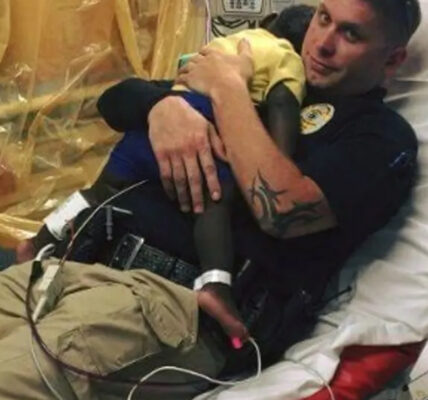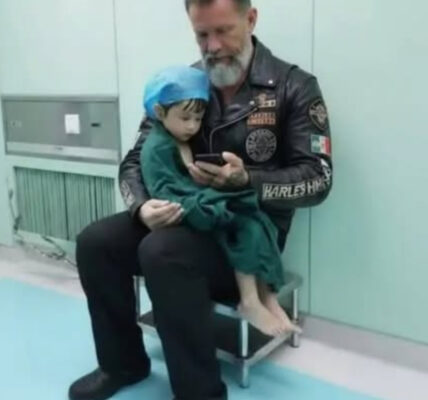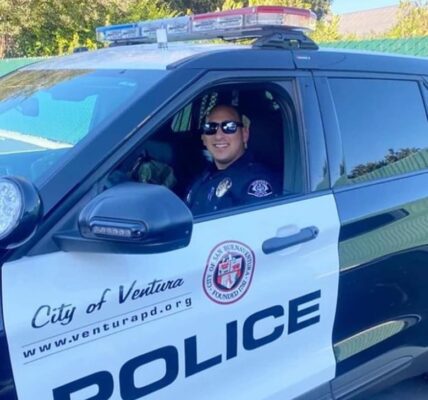
The car began to slow before she even realized what was happening. A flicker of the dashboard lights, a stutter of the engine, and then — silence. The steering wheel grew heavy in her hands as she guided the vehicle onto the shoulder of the road. Her two children in the back seat looked up, confused.
“It’s okay,” she said softly, trying to hide the tremor in her voice. “Mommy just needs a minute.”
Outside, the wind carried the faint roar of traffic, the world rushing past while she sat there, stranded. Her phone battery was low, and rain clouds were gathering. She tried the ignition again — nothing. Panic began to rise, quiet but persistent. Alone on a busy road, with two kids and a dead car, every minute felt heavier than the last.
Then, out of the blur of passing vehicles, a patrol car slowed and stopped behind her.
The flashing lights reflected faintly on the wet pavement, but instead of fear, she felt something else — relief.
The officer stepped out, calm and composed, his voice steady as he approached. “Everything alright, ma’am?”
She explained as best she could. The car had just stopped without warning. She thought maybe she’d run out of gas, though she wasn’t sure. The officer nodded, then looked toward the back seat, smiling gently at the two kids watching him from behind the glass.
“Don’t worry,” he said. “We’ll get you going.”
He walked back to his cruiser and returned with a red gas can. She tried to hand him her debit card, but he shook his head immediately. “No, no,” he said kindly. “I’ve got this one.”
It wasn’t just the words — it was the way he said them. Calm, patient, reassuring. The kind of tone that tells you everything’s going to be okay, even when you don’t believe it yet.
He poured the gas carefully into the tank, trying to shield it from the wind. “You can stay in the car with the little ones,” he told her. “I’ll take care of it.”
When he was done, he closed the cap, stepped back, and nodded. “Alright, let’s give it a try.”
She turned the key. The engine coughed, sputtered — and stayed dead.
For a second, she felt that hopeless wave crash over her again. But the officer just smiled, wiping his hands on his pant leg. “Well,” he said, chuckling softly, “it wasn’t the gas — but we tried.”
He didn’t walk away. He didn’t rush off to his next call. Instead, he leaned against the door and said, “You’ve got help coming, right?”
She nodded. “My friend’s on her way.”
“Good,” he said. “You can wait in my car with the kids if you’d like. It’s warmer there.”
She declined, but his offer — simple as it was — meant more than she could express. He stayed with them, chatting lightly, keeping her calm while her children giggled in the back seat. The storm clouds rolled in, but for a little while, that patch of road felt safe.
When her friend finally arrived, he helped push her car off the main road and into a nearby parking lot. He made sure she was okay before heading back to his patrol car.
Before he left, she thanked him again — for trying, for caring, for being exactly what people hope a police officer will be when they need one most.
He smiled. “It’s what we do, ma’am. You have a good night now.”
Later that evening, as she sat at home replaying the day in her mind, she posted a photo she’d taken — the officer bent over her car with the gas can, the caption simple but full of feeling:
“It wasn’t the gas, but he tried. He even paid for it himself because he didn’t want to take my card. With both my kids in the back seat, he offered to keep us warm and safe until help came. Thank you, officer, for reminding me that kindness still exists.”
In a world so quick to forget the quiet acts of goodness, one man in uniform proved that compassion doesn’t always come in grand gestures. Sometimes, it’s found on the side of the road — in the steady hands of someone who doesn’t just serve by duty, but by heart.
Because heroes don’t always fix what’s broken.
Sometimes, they just show up — and try anyway.
